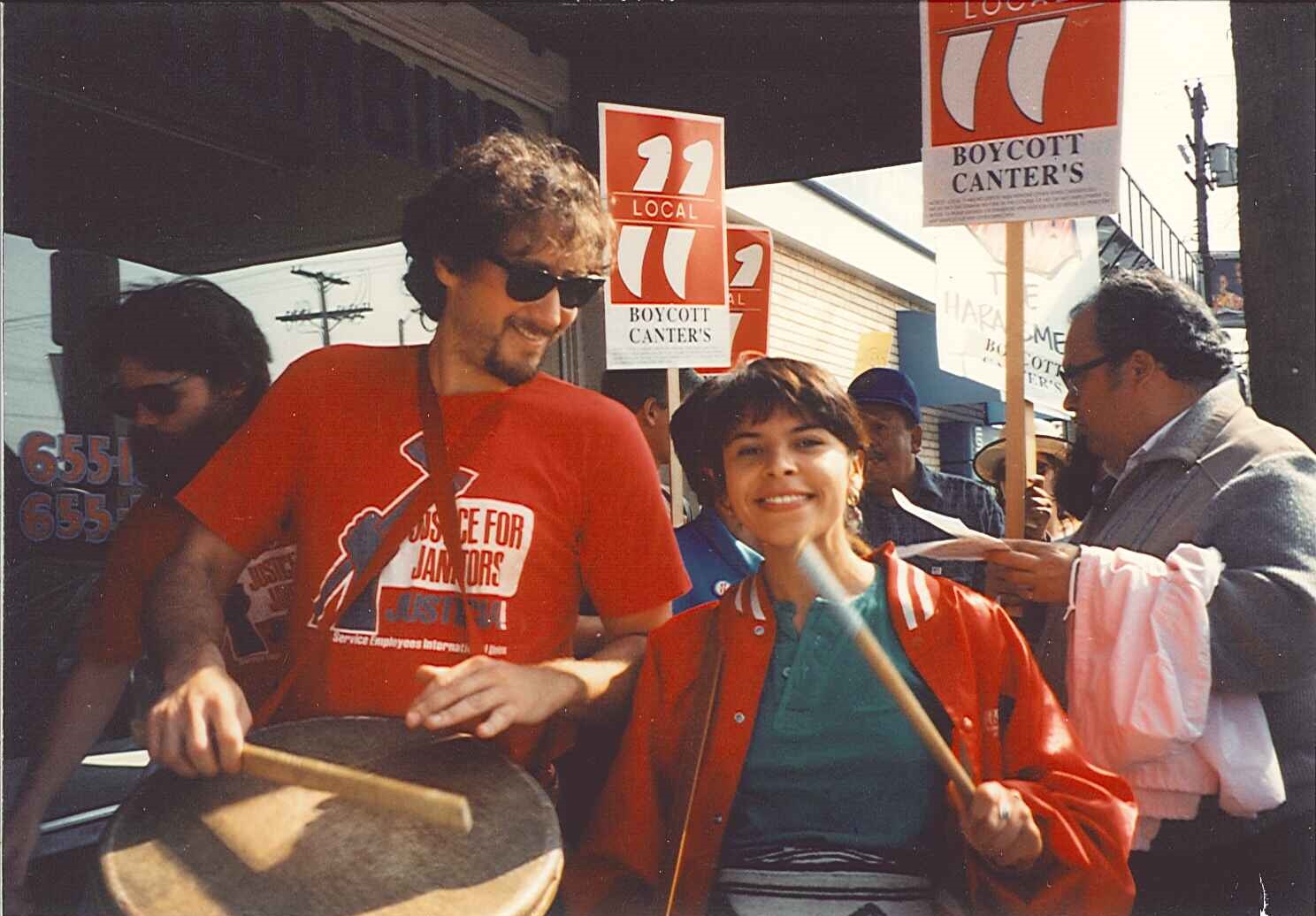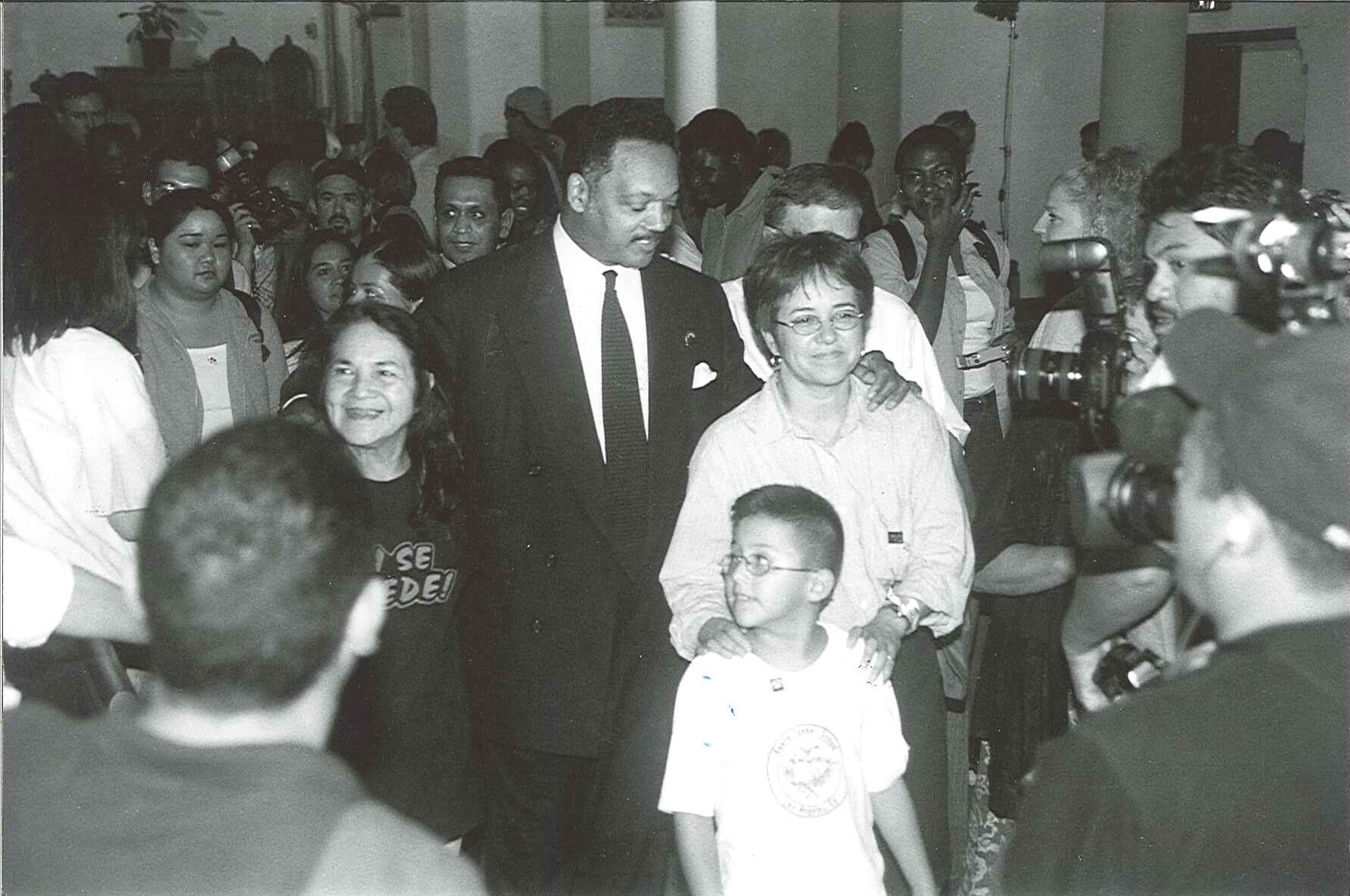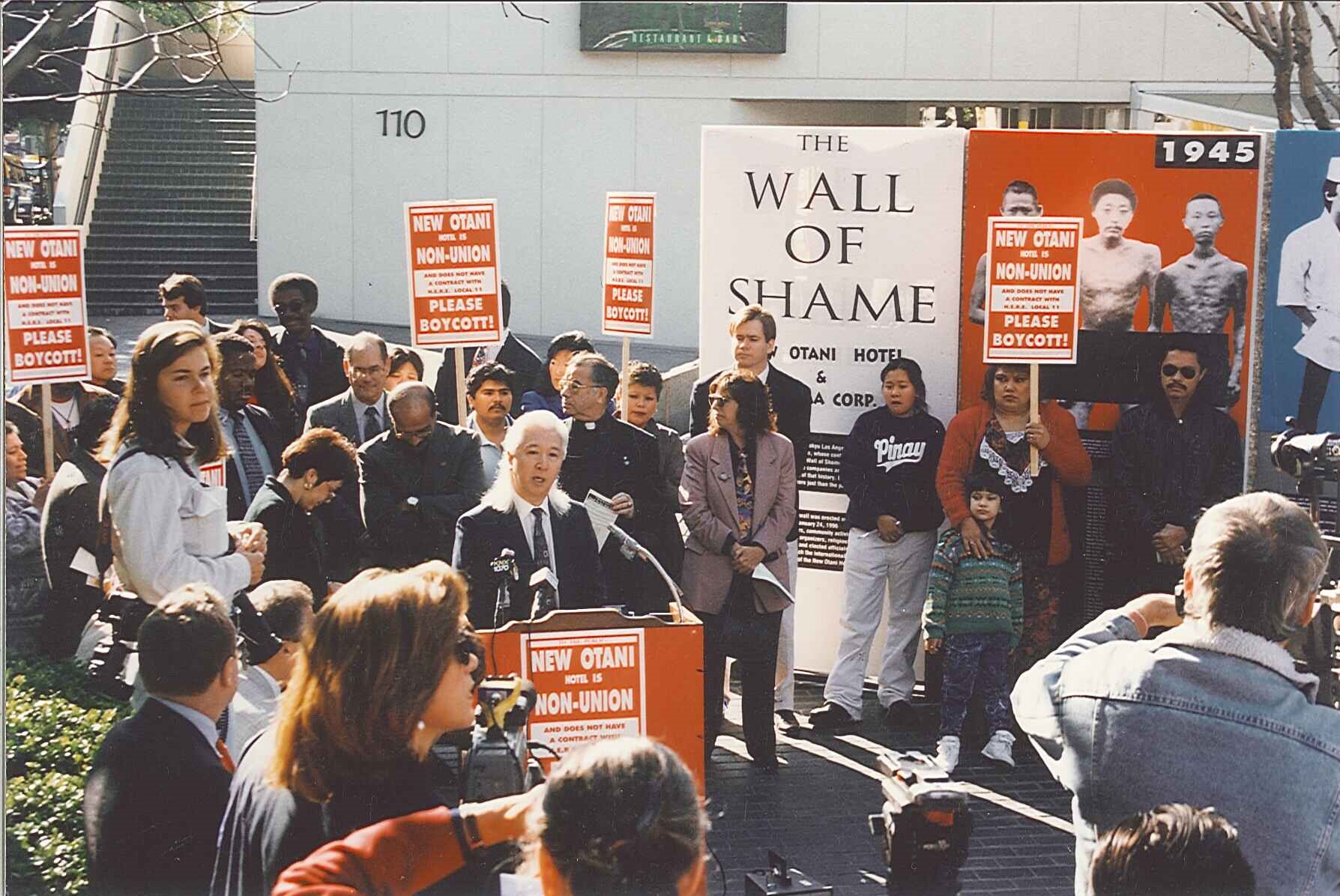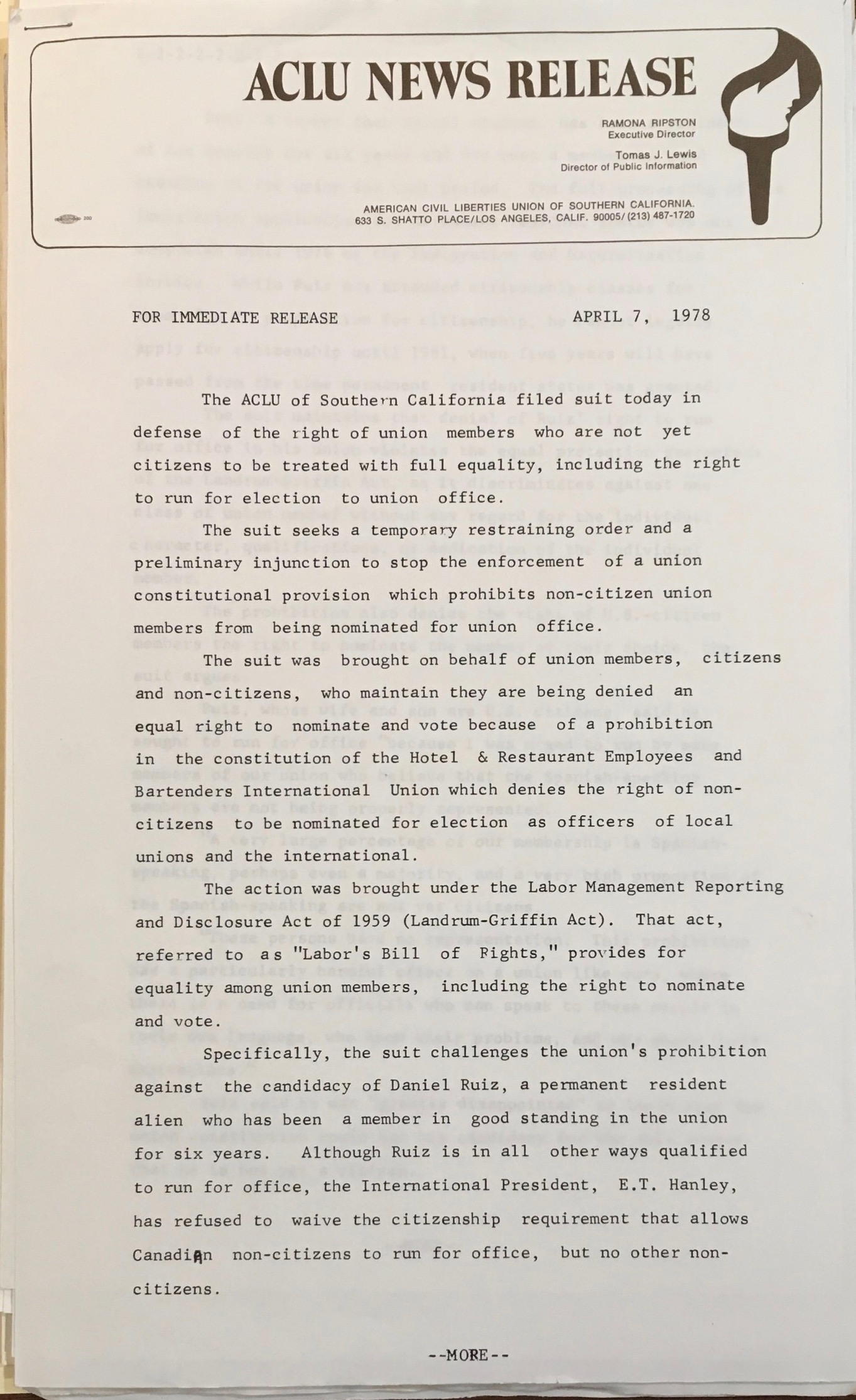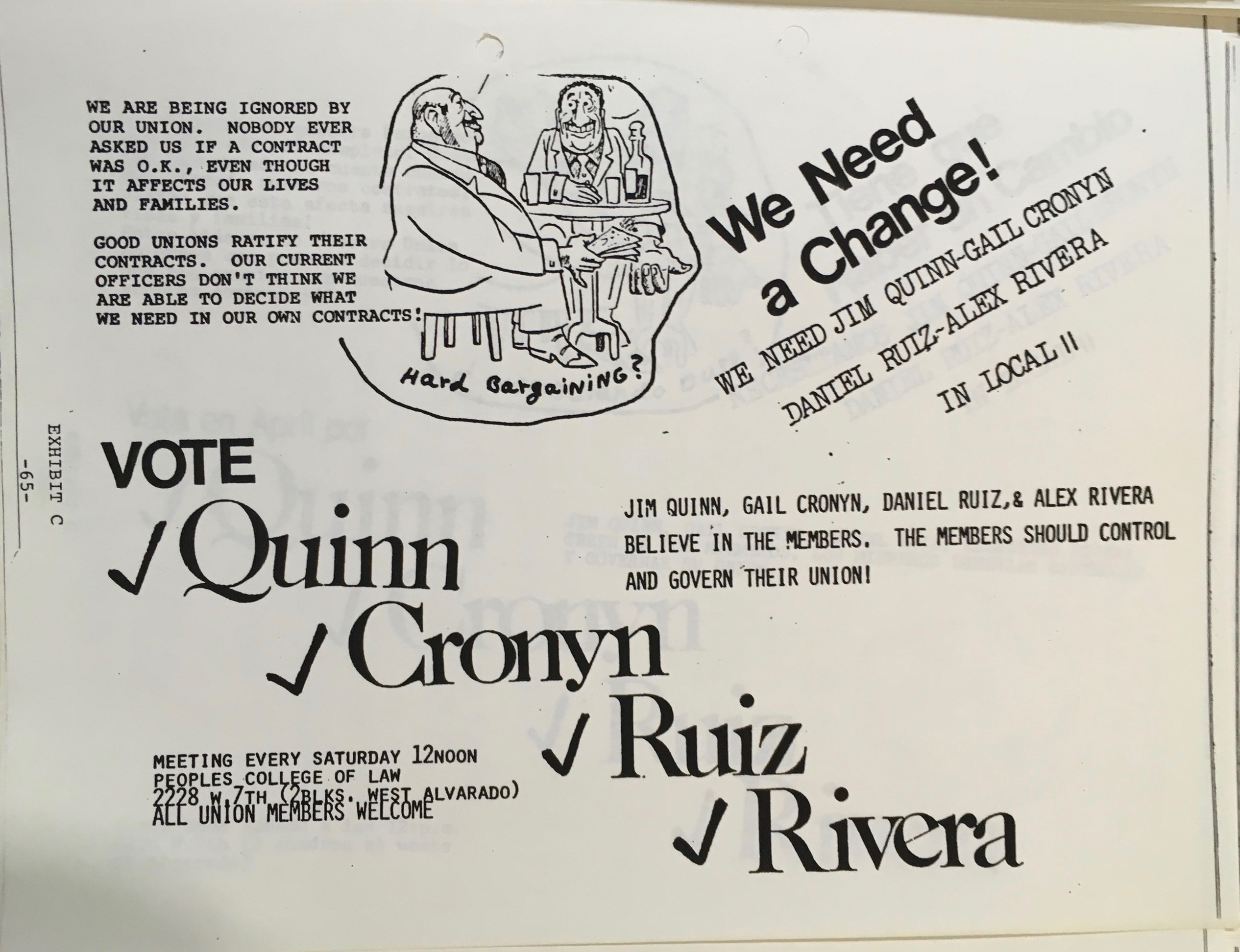Rocio Sáenz recalls the spirit of solidarity among unions in the early 1990s
I come from Mexico City, and I had a union there. Even though, looking back at the unions in Mexico, they were often very corrupt, at the time I thought it was better than nothing. When I came to the U.S., I did a lot of different jobs. I was a domestic worker, I was a salesperson in a store, and stuff like that. But I wanted to be in a unionized workplace, and so I was trying to get a job through a local union. I didn’t know that there was such a thing as being an organizer, but I was making posters and banners for he ILGWU. A few months later, I met someone in Local 11 of HERE and they hired me. Even then, for a few months, I didn’t do organizing. I didn’t even know what it was. But then I got very involved.
I saw a different way to organize [in HERE]. To bring the trust back from the members, and to show that this was a different union. In any organizing drive, you have to show the workers that, yes, you can make a difference. Little victories that you have to deliver, in order to say there is a change. It has to be very, very specific and concrete. And you have to see things as industry-wide. When I was with HERE I remember organizing my first hotel, reorganizing it for the first time in then years. That was in Manhattan Beach, close to the airport. We did it through elections. Well we organized 300 workers, and that was not going to make a big difference for the industry. You have to look at the whole industry, instead of one single work site. You have to do it in a market competitive way. If you’re going to organize, it has to be like all of downtown L.A. has got to go union. It has to be a long-term plan It takes a lot of effort, a lot of persistence, and a lot of resources.
(more…)

